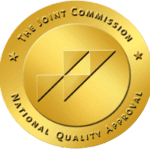Speech Language Pathologist
PHYSICAL THERAPIST & ASSISTANT (PTA)
Nationwide Therapy Group is a leading company that provides Therapist Staffing. A service specializing in speech-language pathology is offered by Nationwide Therapy Group when it comes to healthcare staffing and medical staffing. As a speech-language pathologist, commonly referred to as a speech therapist or a speech pathologist, we provide our children and adults with highly sophisticated speech-language pathology treatment and care.
The speech-language pathologists at Nationwide Therapy Group are clinical specialists in managing communication limitations (speech, language, voice) and swallowing disorders in children and adults, including those with conditions related to the head and neck (head and neck cancer, airway problems, ALS, Parkinson’s, etc.) and neurological illnesses (stroke, Parkinson’s, etc.).
As speech-language pathologists, they provide a range of therapies since they can treat many different disorders. Some of the treatments they can provide are:
- Guiding to help individuals to learn how to produce sounds
- Effectively through teaching them clear and easy ways to communicate
- Communicate through strength exercises designed to build the muscles that are used to talk and swallow
- As well as advising on tricks and techniques to assist people in speaking and understanding more words
- More fluently, as well as advising on how to build sentences based on their own words
- The provision of augmentative and alternative communication systems (AAC) for people with severe language disorders
- This program aims to provide patients and their family members with information about how they can overcome challenges related to communication or swallowing.
- It is possible to provide people with hearing loss with a sort of treatment called aural rehabilitation, which helps improve their quality of life.


